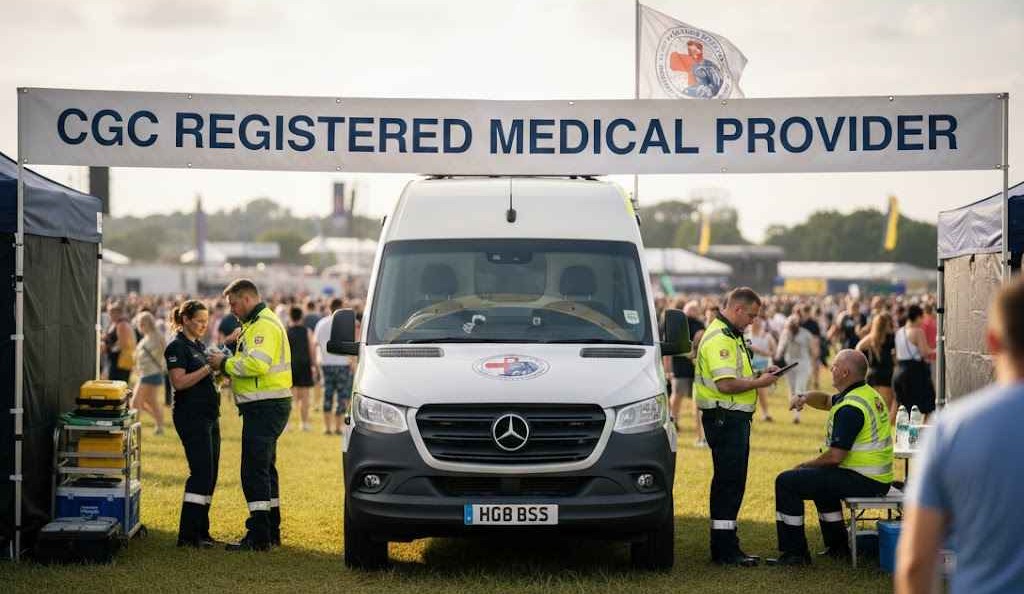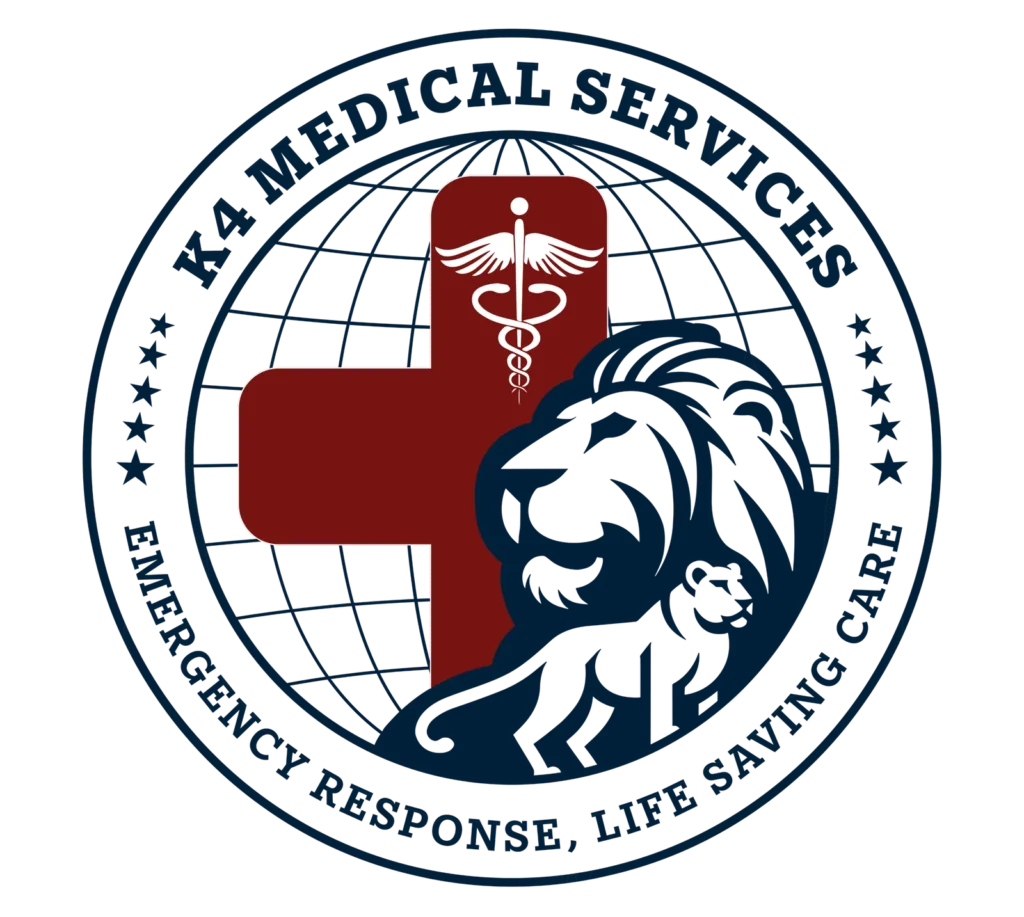Organizing any type of event – whether it is a community fair, annual festival, a business conference, a sports match, or a large private gathering brings an inherent responsibility for safety and medical preparedness. In the UK, one of the strongest indicators of trust and quality services is choosing a Care Quality Commission-registered medical provider for your event.
This blog explores:
- What CQC registration means in the context of event medical care
- Why is it helpful (safety, reliability, legal assurance)
- How the upcoming regulatory changes in the UK impact event medical provision
- What to check when appointing event medical cover services
- How a provider like K4 Medical fits into this case
The Role of the CQC in Regulating Health & Social Care
The Care Quality Commission (CQC) is a regulator of health and social care in England. CQC registration serves as a badge of safety, reliability, and professionalism in medical care support. Its core purpose is to ensure services are safe, helpful, caring, responsive, and well-organised. Any organisation that undertakes regulated activities – for example, treatment or transport of patients, medical assessments, or clinical care beyond basic first aid, usually must register with the CQC, unless a legal exception applies.
First Aid Vs. Regulated Medical Services
One of the key differences between basic first aid and medical treatment/conveyance is that the former involves applying bandages, CPR, and stabilising minor injuries, which is generally not included in CQC criteria.
Why does it matter for a medical service provider to be registered with CQC?
Enhanced Safety & Clinical Governance
A CQC-approved provider complies with the set standards around clinical governance, audit, safety protocols, staff training, incident reporting, and governance frameworks. This ensures more consistency, accountability, and quality control in the care delivered at events.
Under registration, providers must show systems for oversight, record‑keeping, quality improvement, supervision, and safe practices. These elements reduce the chance of failures or gaps in care.
Legal & Liability Protection for Organisers
Event organisers carry a sense of duty and care toward attendees. By hiring a regulated, inspected medical provider, organisers showcase they have taken appropriate measures to safeguard health, helping protect them against claims and liability in adverse outcomes.
Also, insurers and regulatory bodies prefer or require that medical services at events be delivered under regulated, audited frameworks, rather than ad hoc or unvetted providers.
Public Confidence & Reputation
When attendees and stakeholders know an event is supported by a CQC‑appointed medical team, it builds trust. It demonstrates professionalism, oversight, and accountability, especially in the case of a medical emergency.
Adapting to Regulatory Shifts in the UK
The Department of Health and Social Care (DHSC) is working to eliminate certain exemptions that have historically allowed event medical treatment to operate unregulated. By late 2025 or early 2026, more providers offering TDDI services at events may be required to register with the CQC.
Organisers who choose to partner now with CQC‑registered providers will be better placed to abide by the forthcoming rules, avoid last-minute compliance rushes, and ensure consistent medical standards at their future events.
What Organisers Should Look For in an Event Medical Provider
Verification & Transparency
- Ask the provider which regulated medical activities they are approved for (e.g., “treatment of disease/injury, “transport”).
- Check their registration on the official CQC register.
- You can also request their provider ID and inspection history.
Clinical Leadership & Governance Structure
The provider should have a named clinical lead (such as a paramedic, doctor, or nurse) actively overseeing policies, medical plans, risk assessments, safety protocols, escalation, and DBS-checked staff.
They must maintain incident logs, quality reviews, training oversight, and protocol updates.
Staff Credentials, Training & Vetting
The medical staff should possess relevant professional registrations (HCPC, NMC, GMC, etc.), and you should check their qualifications and continuous training.
DBS (or equivalent background) checks and competency assessments are essential.
Infrastructure, Equipment & Transport Capability
The provider should bring resourceful medical equipment (AEDs, monitors, resuscitation kits, etc.).
They should be prepared for patient transport, on‑site stabilisation, and handover to NHS / emergency services.
Logistics planning (site access, routes, staging, handover points) must be integrated into event planning.
Insurance, Protocols & Liability Agreements
You can request that the medical provider carry both clinical indemnity and public liability insurance.
Contracts should clearly define escalation, escalation to 999, medical handover, roles, and responsibilities.
Clarify how the provider will liaise with local health services and what standards/protocols they follow.
What We Offer at K4 Medical
At K4 Medical, we offer CQC-registered private ambulances and vehicles are your event medical cover with highly-qualified and experienced medical staff that offer services at:
- Educational and Sporting events
- Corporate functions and community gatherings
- Community fairs, festivals, and private events
Our team includes paramedics/advanced paramedics, first aiders, an on-site doctor, and a treatment area with clinical leads and private ambulance services. We offer full site support, event risk assessments, and post-event reporting.
We are providing our medical care services in all boroughs of London, primarily in the South East England region, i.e., London, Oxfordshire, Surrey, Kent, Essex, Buckinghamshire, Berkshire, and Hertfordshire. K4 Medical offers emergency and non-emergency ambulances and wheelchair-accessible cars to patients in need.


